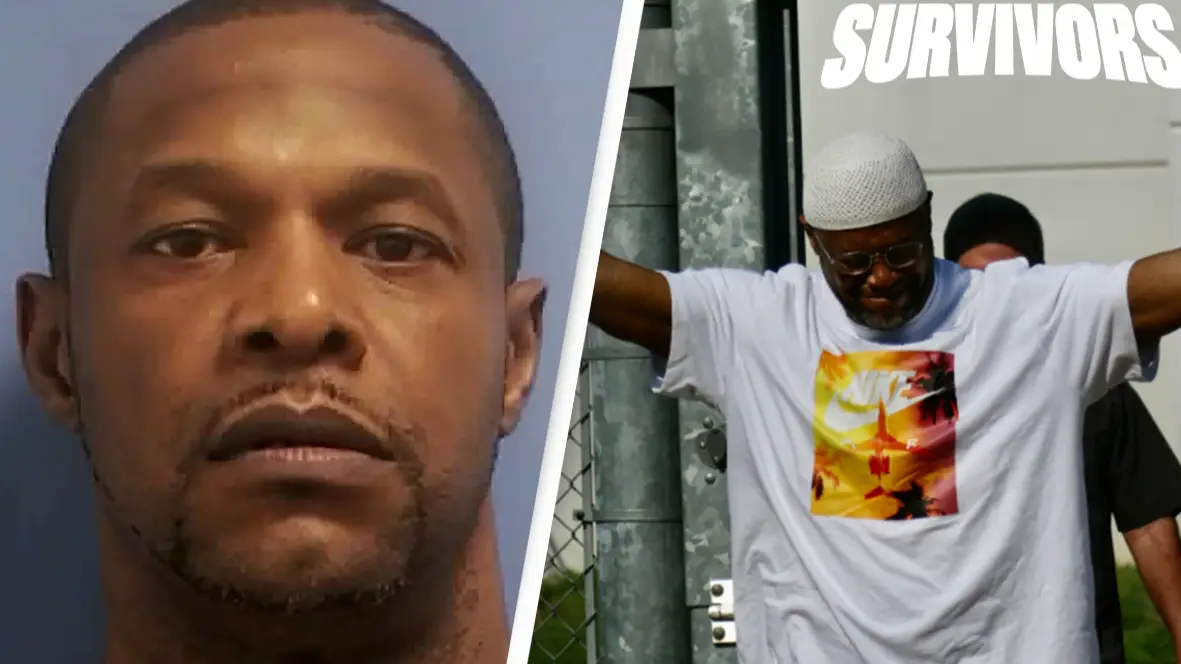
Warning: This article contains mentions of violence and suicidal thoughts which some readers may find distressing.
Sherwood Brown spent 23 years of his life on Mississippi death row for crimes he did not commit.
How would you motivate yourself to survive if you were wrongly sent to prison for a triple murder, handed the death penalty and spent more than two decades on death row?
Sherwood was sentenced in 1995, beginning the 23 years he spent on death row for crimes he didn't commit. This is how he survived.
Advert
What led to Sherwood's conviction
On January 6 1993, 13-year-old Evangela Boyd, her mother, 48-year-old Verline, and 82-year-old grandmother, Betty, from DeSoto County, Mississippi, were killed. Two years later, 26-year-old Sherwood was convicted of their murders.
Death Penalty Info reports the conviction relied heavily upon several testimonies and alleged evidence - an FBI agent testifying blood was found on a pair of Sherwood's shoes, however, they 'could not confirm absolutely the presence of blood' in a 'confirmatory test’.
Another said they weren’t ‘able to determine positively' whether a pair of Sherwood's shoes matched bloody footprints found at the Boyds' house.
A doctor testified it was 'highly probable' a cut on Sherwood's wrist had been made by Evangela, but later said they couldn't say with 'absolute certainty' or even 'reasonable certainty'.
And - while facing serious charges themselves - one of Sherwood’s former friends claimed they’d heard him admit to the crimes. They received no prison time in return for their testimony.
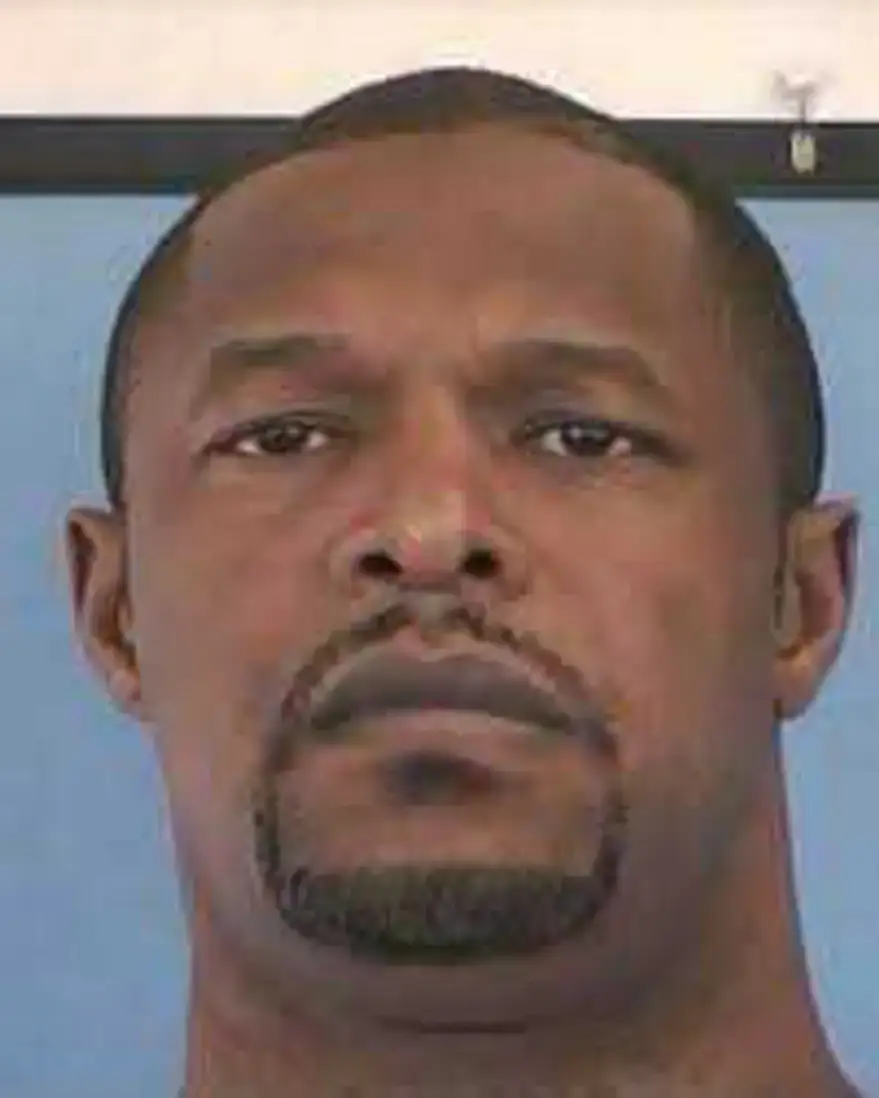
Receiving the death sentence
Sherwood was subsequently convicted on one count of capital murder and handed the death sentence alongside two consecutive life sentences.
The now-56-year-old tells UNILAD it took 'a lot of years being on death row to really realize' he was there.
"I actually thought I was going to die within the next month," Sherwood said. "They sentence you to a date and I'm sitting there in my cell, preparing myself to get executed."

Death row
"It almost happened, but it didn't."
Instead, Sherwood would spend the next 23 years receiving the same hole-filled tray of food, spending 23 hours a day in his cell with fleeting trips outside in the chicken coop 'pens'.
He faced racial discrimination, 'got jumped by a lot of guys,' saw 'a couple of guys get killed' and even 'got stabbed in the neck' himself, but bar some self defence, he never hit back.
Why? Sherwood knew he was innocent and didn't want to risk anything jeopardizing future freedom.
"We [were] supposed to be fighting for our life on death row [but] we tried to kill each other."
And Sherwood also had another battle to fight - not giving up.
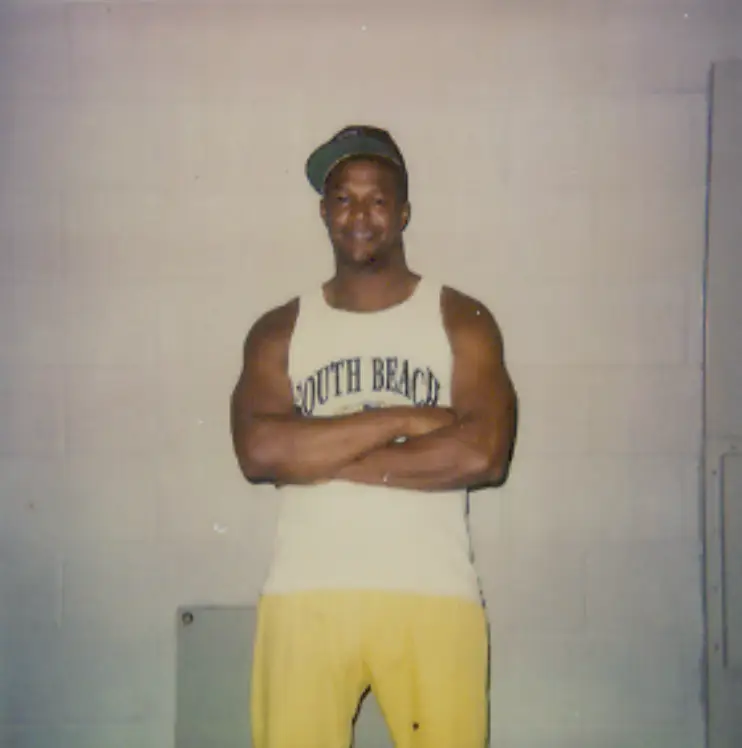
Holding on to hope
"Year after year, my case kept getting turned down. Sometimes you want to give up. It makes you want to give up," Sherwood says. "You want to kill yourself. But [...] if you kill yourself how can you prove you're innocent? Then people will say, 'Well, he killed himself because he was guilty'."
But day after day, week after week - for over 20 years - Sherwood didn't give up. He survived. Motivated to 'come home' for his family.
In the time he was locked up, Sherwood sadly lost his mom, grandmother and 'big momma' - "People that really cared about me and [who] wanted to see me home."
Nevertheless, the motivation to make it out for the rest of his loved ones kept him going on top of 'the anger' of knowing he was innocent.
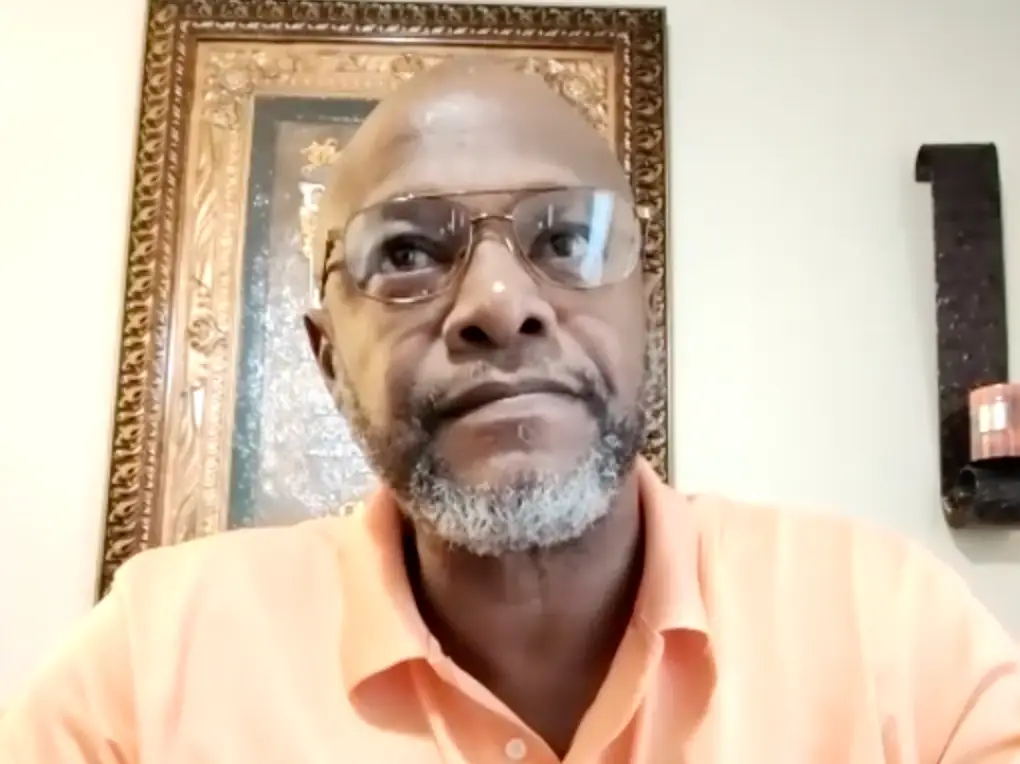
"It was killing me at the same time, but it kept me motivated because I knew I hadn't done anything.
"I'm constantly saying in my head: 'You gonna go home, you gonna go home'."
Exoneration
In 2018, Mississippi Supreme Court reversed Sherwood's convictions based on DNA testing and false evidence, and he was transferred to Desoto County jail while his case was re-investigated.
In August 2021, it was decided Sherwood wouldn't be re-tried but set free - his release day 'the best day', but 'a sad day' too.
"I didn't get a chance to show her [his mom] that I made it."
Sherwood recalls putting on his new clothes so fast he 'left some of the tags,' but when he finally walked out of the prison gates he felt confused.
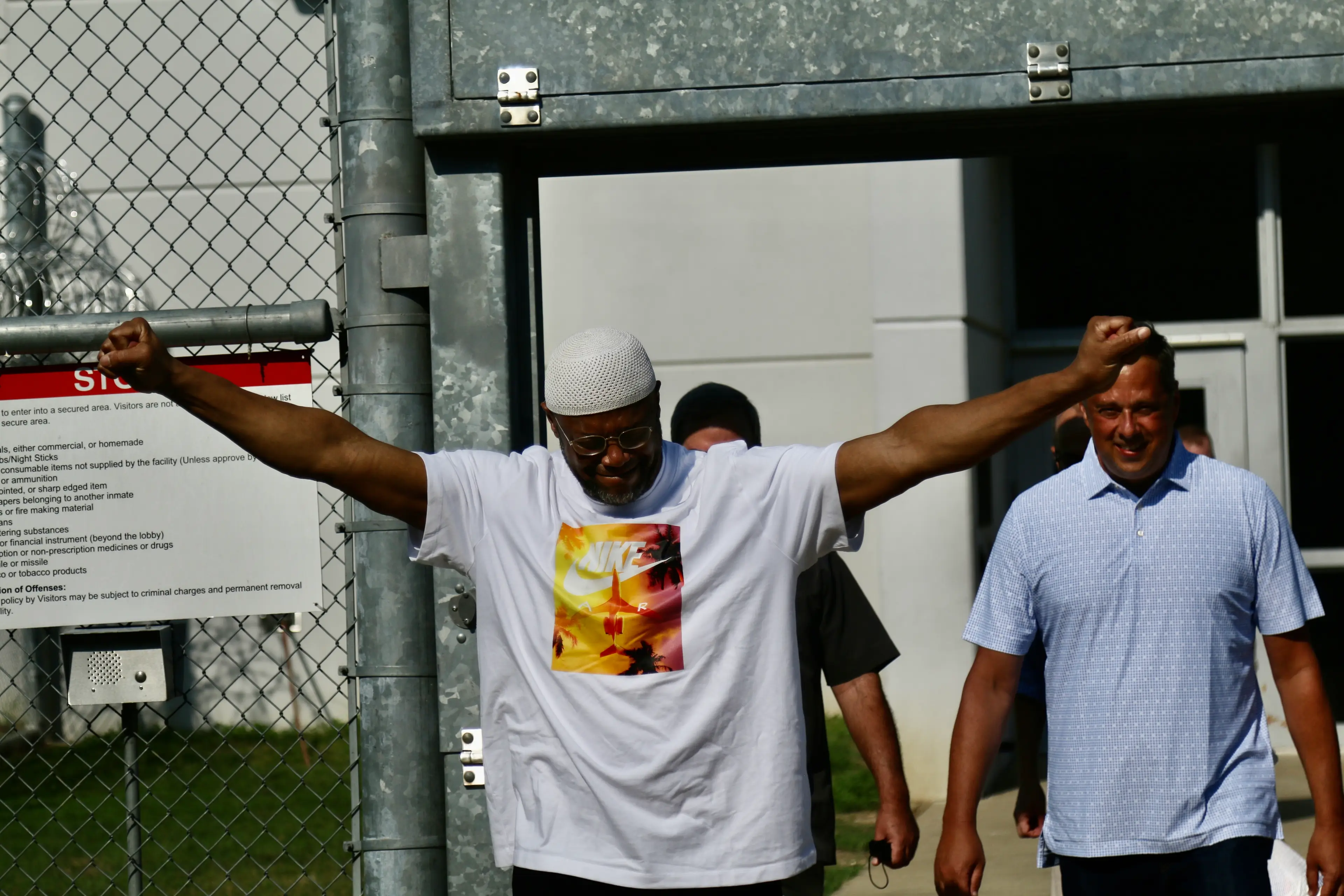
"I didn't know if I wanted to be happy, I didn't know if I wanted to cry - I couldn't cry. I think it took a minute to realize that I was out."
Sherwood's first meal when he left prison was a 'big old steak'.
"And big old thing of fries. I didn't know if I was supposed to pick it up with both of my hands - I'm trying to think which hand to use to hold a fork in and cut with the knife."
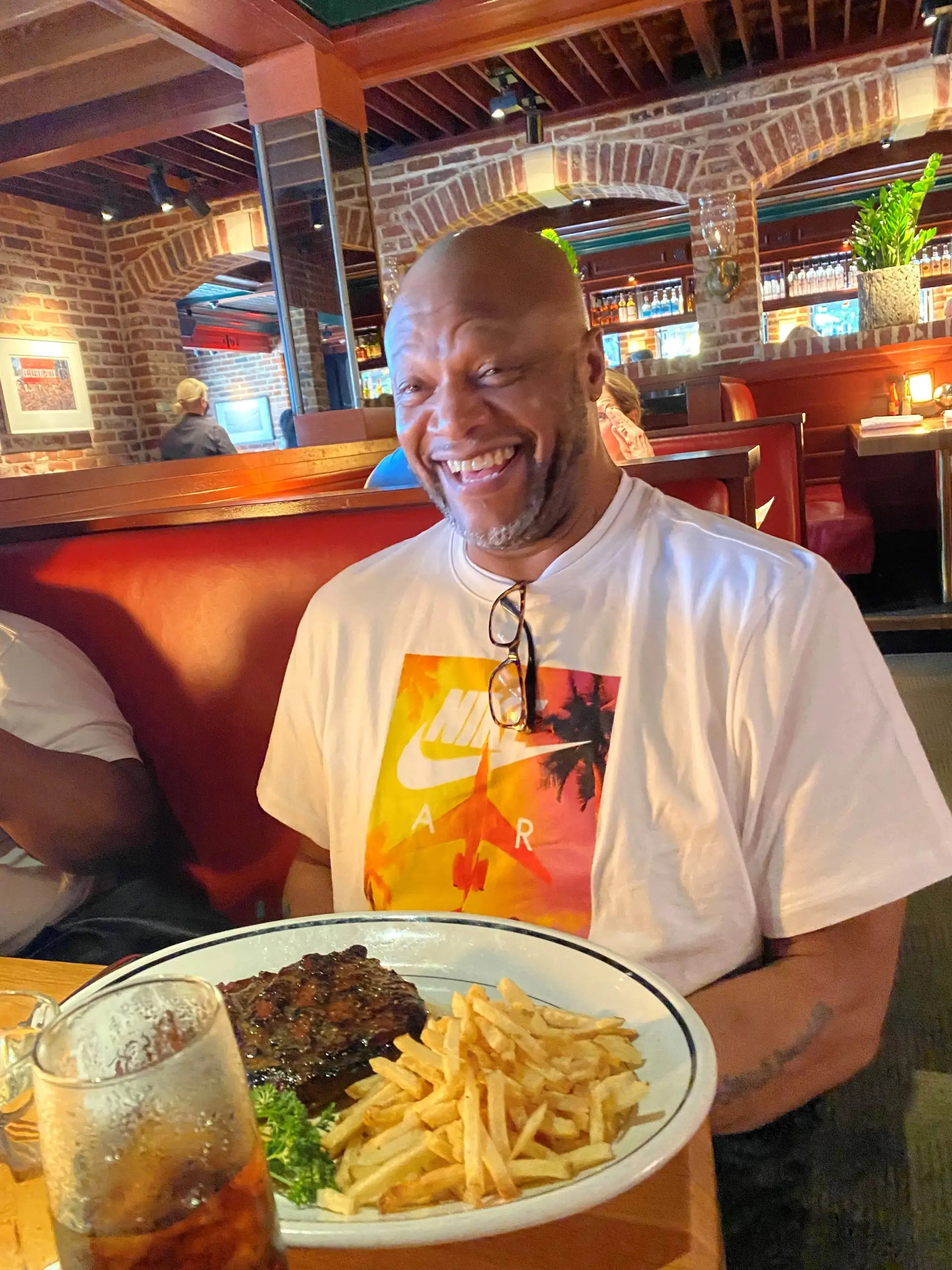
"It was one of the best days of my life, but [...] after being locked up for 28 years [five of those in standard prisons], everything was new."
Life now
Sherwood may've survived death row, but he carries 23 years' worth of memories and experiences with him, saying he feels 'messed up inside'.
"I've been home almost three years and I still call my plate a tray."
And despite being exonerated, Sherwood says people 'still judge' him and look at him 'sideways' to this day.
He admitted it's 'rough' both mentally but also physically, with hip replacements and a stent resulting in him being disabled and unable to work.
"Since I've been home I'm not young anymore."
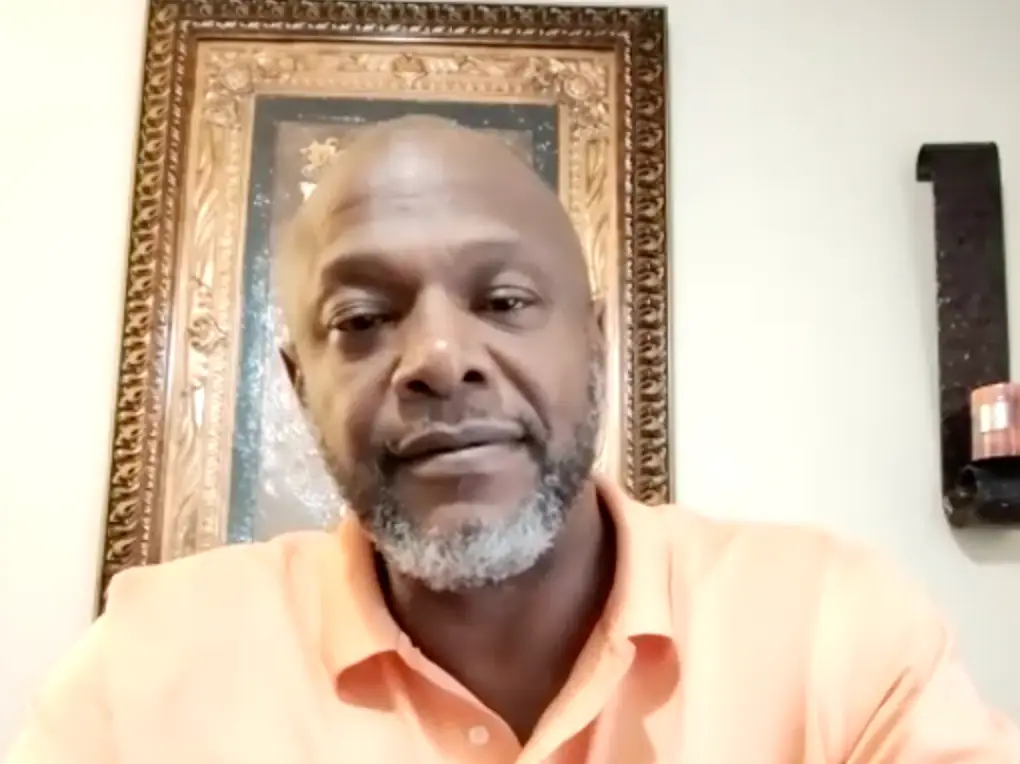
Sherwood has also yet to see his former friend who provided statements which led to his conviction - despite asking to see him.
"Not to do anything to him - I'm not trying to lose my life to go back into the system again - just to ask him 'why? Why you threw my life away?'" Sherwood explains. "I feel like I can move on with my life if I hear him say something, or nothing."
However, Sherwood admits he's not always felt this way - the idea of 'vengeance' keeping him motivated on death row too.
"I used to work out every day - hard - just to try to keep my body in shape," he says, explaining he used to wet old legal papers and stuff them into garbage bags to use as weights.
However, one of his friends on death row turned around to him and said: "Man, you know something? You ain't doing nothing but hurting yourself.'"
And Sherwood now hopes to offer similar advice to others who remain behind bars.

Why Sherwood returns to death row
Since 1973, Sherwood is the 100th African-American in the US be exonerated from a wrongful capital conviction and death sentence.
His voice and story are just one of many more innocent people currently imprisoned on death row, awaiting their executions.
Sherwood urges them: "Just don't give up. Sometimes I know your mind play tricks on you, but don't give up."
And Sherwood still visits death row - or what he refers to as 'home' - too.
"People look at me when I said that was my home, but that was my home. That was my family, [...] the guys I knew for almost 30 years."
While he shouldn't ever have been there, Sherwood says death row 'saved' him.
"Even though it were bad for me, [it] saved my life [...] from being in the street or getting killed," he explains. "But it also put me in a situation of getting killed by the state of Mississippi. And then I also had to fight for my life inside - that was the hardest part.
"You don't want to do anything to jeopardize you getting out."
It's a 'blessing' for Sherwood to be out, but he can't help but 'feel bad' for the others he's 'left behind'.
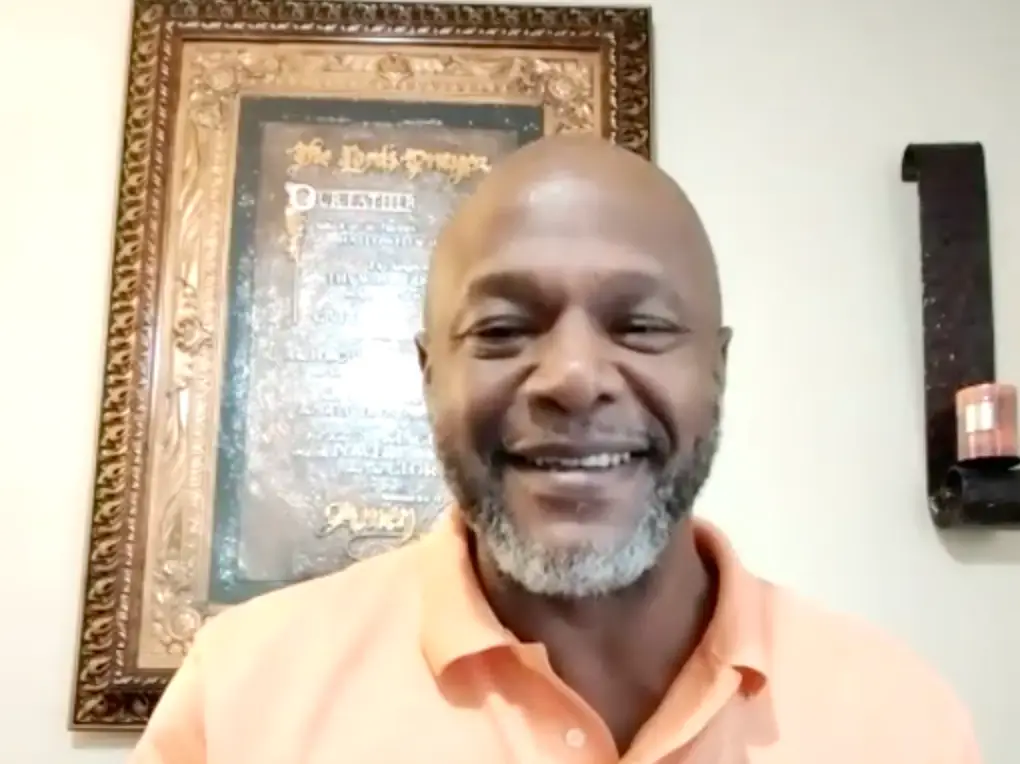
He says: "You get to see the good in people and you get to see the bad - and some people shouldn't be there.
"I must speak on their behalf. There's a lot of guys on death row, their whole life has changed - you get older, you change.
"People don't like to see you do good, they only want to see bad."
At the time of writing, Sherwood has yet to receive any sort of compensation or apology from the state of Mississippi.
He's since been working alongside the Innocence Project, the law firm Fish & Richardson - which represented him pro-bono - and employment charity HopeWorks in Memphis to help raise awareness and support those who remain imprisoned.
My final question to Sherwood is: "Having been confronted with death, what advice would you give to others about life?"
Sherwood resolves: "You don't know how much life means to you until you get your life back. Life is precious. Life is everything. In fact, if I could start my whole life all the way over again, from my childhood to coming back up, I think I would be something good.
"Yeah, I will be something good. And trying to make a change. But I need help."
To help support Sherwood, you can donate to his CashApp - $brownsherwood1968 - and you can support the projects he's involved with by following the links above.
UNILAD’s Survivors series sheds light on different survival experiences and the lessons learned from facing death. New interviews are being released daily beginning May 20.
Topics: US News, Crime, True crime, Health, Mental Health